Instead of writing a syllabus or creating assessments or working on lessons plans, I have procrastinated and scoured some images from the web to make these. I have uploaded .png's of these into thi...
Get Started for FREE
Sign up with Facebook Sign up with X
I don't have a Facebook or a X account
 Your new post is loading... Your new post is loading...
 Your new post is loading... Your new post is loading...

Saberes Sin Fronteras OVS's curator insight,
October 18, 2014 12:15 PM
EDUCAR NO ES ENSEÑAR A VIVIR, LA COMUNICACION EDUCADOR-ALUMNO ES LA VIDA 
Tony Guzman's curator insight,
October 20, 2014 9:47 AM
I am a firm believer of lifelong learning and this 
Li Banban's curator insight,
October 20, 2014 8:23 PM
keep a growth mindset! its never too late to learn.

David Baker's curator insight,
July 29, 2014 5:32 PM
This will be a valuable tool to share in seminar with my new teachers as we look at their students and how the teacher views their classroom.

Intriguing Networks's curator insight,
December 1, 2013 10:55 AM
Mindset can we use DH to shift user mindsets? 
Phil Turner's curator insight,
December 1, 2013 5:50 PM
Learning experientially can be more or less painful ... depending on your mindset. You can pick your mindset, and this checklist helps you reflect on what mode you are operating in.

Mary Cunningham's curator insight,
April 7, 2013 12:54 PM
This fits really well with the SIM work that has been happening! It is a nice visual representation of the Dwek work.
Jaimee's curator insight,
March 5, 2014 10:06 AM
People/Students do not go for the challenges because they are scared of failure. With failure come consequences fro example low grades. Anyone can say the grade doesn't matter it is what you learned, however without the grade you can lose out on getting accepted into colleges or fail a class.
This article is about about how one can reach success by having a growth mindset. By gaining and having the drive to gain more knowledge. |

Mika Auramo's curator insight,
March 3, 2015 12:08 AM
There is very useful listing how to improve understanding about growth mindset in classroom.

Rocio Watkins's curator insight,
December 3, 2014 1:59 AM
Growth mindset has changed the way I teach, the way I parent my three boys, and the way I face challenging situations and risks. It has given me the resilience I need while in graduate school. Dr. Carol Dweck's book, Growth Mindset, is a paradigm-changing book. I highly recommend it. Thanks for sharing this great visual representation of Growth vs. Fixed Mindsets. 
liz's curator insight,
December 3, 2014 8:24 AM
I have been hearing quite a few ideas...becoming a real "buzz" word! It seems to appear within all forms of dialogue? 
Ness Crouch's curator insight,
February 15, 2016 4:44 AM
This is an interesting article about Growth Mindset in classrooms.This is a good introduction for how it can be used in the classroom.

LibrarianLand's curator insight,
April 24, 2014 2:38 PM
Slick but effective video illustrating the difference between a fixed, less conducive to learning mindset and the more open, growth-oriented type of outlook.

davidconover's curator insight,
November 8, 2013 10:22 AM
This is a thought provoking article for both teachers and administrators.
Jaimee's curator insight,
March 5, 2014 10:11 AM
Teachers not just family members can be a part of a students mindset. How they think and what challenges to make can also be in response to how teachers are teaching them.
This article explains in a way how helplessness can be a part of someone not being successful. It explains the initiative that someone must take to be successful in school.
Xander Norris's curator insight,
March 6, 2014 11:13 AM
This article is talking about how educators are moving from a fixed mindset to a growth mindset, and this has to do with the changes of the curriculum, and forced standardization. This is talking about how success is based on learning, and why some students give up on it.

Carlos Fosca's curator insight,
June 11, 2013 4:37 PM
Las situaciones que vivimos diariamente, nuestras creencias, la experiencia que acumulamos, la capacidad de atención, el sentimiento de la esperanza que albergamos, son algunos aspectos que pueden mejorar nuestra inteligencia. La tecnología también nos puede hacer más inteligentes o más “tontos”. Estudios del cerebro han encontrado que cuando usamos herramientas, incluyendo dispositivos electrónicos, nuestra mente los puede asociar como una extensión de nuestro cuerpo. Sin embargo, utilizar la internet precisamente como parte de nuestro cerebro para almacenar hechos, sin la necesidad de retenerlos mentalmente, puede atrofiar habilidades clave para la sociedad del conocimiento. El pensamiento crítico, la capacidad de resolver problemas, el trabajo colaborativo y la creatividad, entre otros, no pueden emerger en el “disco duro” de un cerebro humano vacío de contenidos. 
Tony Meehan's curator insight,
July 15, 2014 4:26 PM
interesting article highlighting the evidence that intelligence is not a fixed entity but is something that needs to be nurtured and helped grow in all of us. The evidence from the fields of cognitive science, psychology, philosophy, neuroscience combine to create the science of learning. As educators we have to get to grips with the complexities of learning and we can only do this by gaining a deeper understanding of these fields and how they help us reframe our approaches to teaching and learning. |



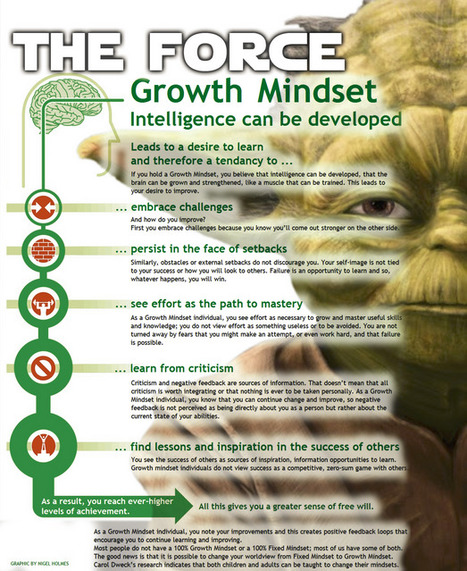

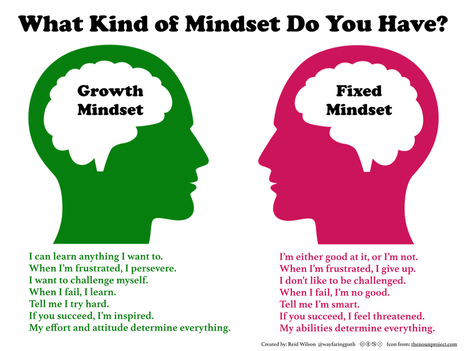






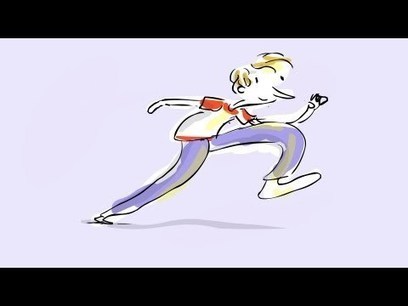
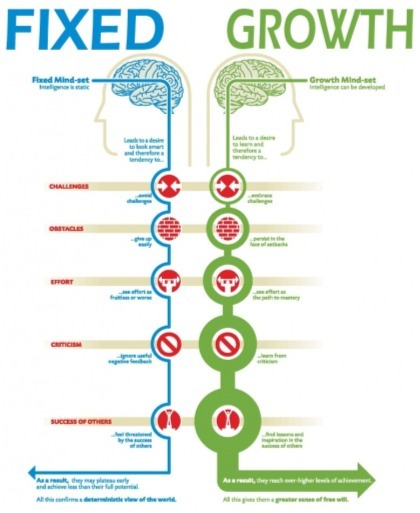

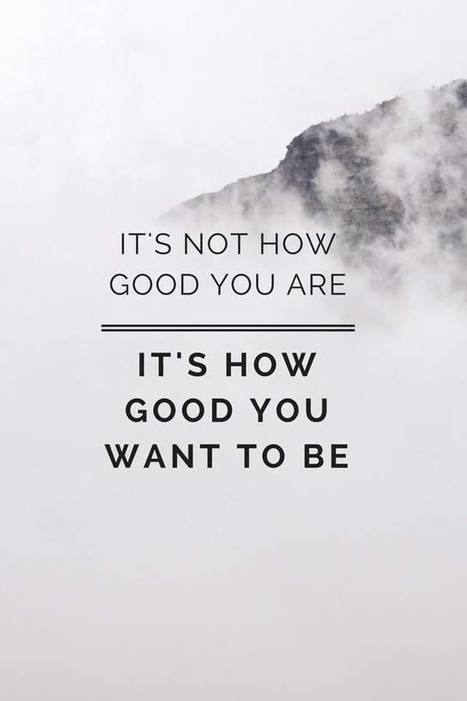
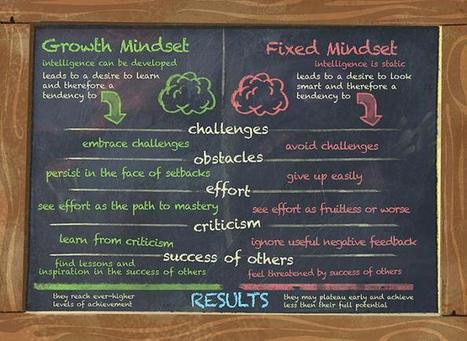
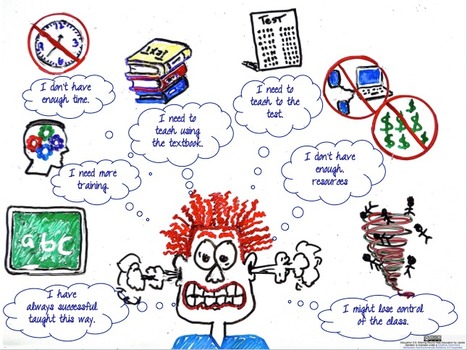


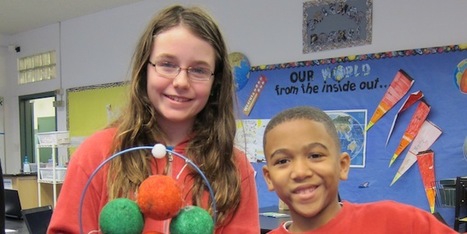





If your learners are fans of Star Wars, then these posters may find a place in your classroom. You will find not only the image above (which is on Growth Mindset), but also an image of The Dark Side, otherwise knows as a Fixed Mindset.
In addition, there is a poster 8 Mathematical Processes of Jedi Masters, as well as one on Standards Based Gradings (an assessment tool). To go directly to a page that allows you to download the images click here.
If your learners are fans of Star Wars, then these posters may find a place in your classroom. You will find not only the image above (which is on Growth Mindset), but also an image of The Dark Side, otherwise knows as a Fixed Mindset.
In addition, there is a poster 8 Mathematical Processes of Jedi Masters, as well as one on Standards Based Gradings (an assessment tool). To go directly to a page that allows you to download the images click here.
If your learners are fans of Star Wars, then these posters may find a place in your classroom. You will find not only the image above (which is on Growth Mindset), but also an image of The Dark Side, otherwise knows as a Fixed Mindset.
In addition, there is a poster 8 Mathematical Processes of Jedi Masters, as well as one on Standards Based Gradings (an assessment tool). To go directly to a page that allows you to download the images click here.